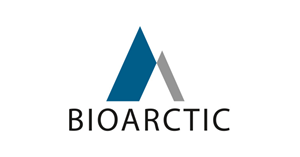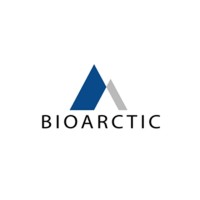The Rise of Leqembi: A New Dawn in Alzheimer’s Treatment
October 31, 2024, 7:12 am

Location: United States, Massachusetts, Cambridge
Employees: 5001-10000
Founded date: 1978
In the world of Alzheimer’s research, a beacon of hope shines brighter than ever. Leqembi, a drug developed through a partnership between BioArctic and Eisai, is making waves. The latest reports reveal that Leqembi generated JPY 10 billion in revenue during the third quarter of 2024. This marks a staggering 60% increase from the previous quarter. The numbers tell a story of growing acceptance and demand for this groundbreaking treatment.
Leqembi, or lecanemab, is not just another drug. It’s a lifeline for those grappling with early Alzheimer’s disease. Approved in multiple countries, including the U.S., Japan, and the U.K., it targets amyloid-beta proteins, the culprits behind the disease. By clearing these proteins from the brain, Leqembi alters the course of Alzheimer’s, offering patients a chance to reclaim their lives.
The partnership between BioArctic and Eisai has been a strategic alliance since 2005. Their collaboration has been pivotal in the development of lecanemab. Eisai leads the charge in global development and regulatory submissions, while BioArctic focuses on commercialization in the Nordic region. This synergy has proven fruitful, as evidenced by the soaring sales figures.
The journey of Leqembi is rooted in scientific innovation. Professor Lars Lannfelt, a co-founder of BioArctic, has been at the forefront of Alzheimer’s research for decades. His pioneering work has earned him the CTAD Lifetime Achievement Award, recognizing his contributions to drug development. Lannfelt’s discoveries laid the groundwork for lecanemab, making him a key figure in the fight against Alzheimer’s.
The recent CTAD congress in Madrid brought together 2,200 experts to discuss the latest advancements in Alzheimer’s treatment. The atmosphere buzzed with excitement as researchers shared their findings. Lannfelt’s award was a highlight, underscoring the importance of his work in this evolving field. The conference served as a reminder that the fight against Alzheimer’s is not just a scientific endeavor; it’s a mission to restore hope to millions.
Leqembi’s success is not merely a financial triumph. It represents a shift in the paradigm of Alzheimer’s treatment. Traditional approaches often focused on managing symptoms rather than addressing the root causes. With lecanemab, the narrative changes. It’s about modifying the disease itself, offering a glimmer of hope for patients and families alike.
The clinical trials that paved the way for Leqembi’s approval were rigorous. The Clarity AD trial, a Phase 3 study, demonstrated significant benefits for patients. The results were compelling, showing that lecanemab could slow cognitive decline. This breakthrough has set a new standard in Alzheimer’s research, pushing the boundaries of what’s possible.
As the drug gains traction, BioArctic is preparing for a joint commercialization effort in the Nordic region. This strategic move is crucial as they aim to expand Leqembi’s reach. The company is poised to capitalize on the growing demand for effective Alzheimer’s treatments. With no development costs for lecanemab, BioArctic stands to benefit significantly from the drug’s success.
The landscape of Alzheimer’s treatment is evolving. With new diagnostic methods and innovative therapies, the future looks promising. Researchers are optimistic that, in the coming years, they will not only slow the progression of the disease but potentially halt it altogether. This vision is fueled by the success of drugs like Leqembi.
However, challenges remain. The journey from research to widespread adoption is fraught with hurdles. Regulatory approvals, market access, and patient education are all critical components. BioArctic and Eisai must navigate these complexities to ensure that Leqembi reaches those who need it most.
The road ahead is paved with potential. As more countries consider approval for lecanemab, the global impact could be profound. The collaboration between BioArctic and Eisai serves as a model for future partnerships in the biopharmaceutical industry. Together, they are not just developing a drug; they are reshaping the future of Alzheimer’s treatment.
In conclusion, Leqembi’s rise is a testament to the power of collaboration and innovation. It symbolizes hope for millions affected by Alzheimer’s disease. As the world watches, the success of this drug could redefine the landscape of neurodegenerative treatments. The fight against Alzheimer’s is far from over, but with Leqembi, a new chapter has begun. The dawn of a new era in Alzheimer’s treatment is here, and it shines brightly on the horizon.
Leqembi, or lecanemab, is not just another drug. It’s a lifeline for those grappling with early Alzheimer’s disease. Approved in multiple countries, including the U.S., Japan, and the U.K., it targets amyloid-beta proteins, the culprits behind the disease. By clearing these proteins from the brain, Leqembi alters the course of Alzheimer’s, offering patients a chance to reclaim their lives.
The partnership between BioArctic and Eisai has been a strategic alliance since 2005. Their collaboration has been pivotal in the development of lecanemab. Eisai leads the charge in global development and regulatory submissions, while BioArctic focuses on commercialization in the Nordic region. This synergy has proven fruitful, as evidenced by the soaring sales figures.
The journey of Leqembi is rooted in scientific innovation. Professor Lars Lannfelt, a co-founder of BioArctic, has been at the forefront of Alzheimer’s research for decades. His pioneering work has earned him the CTAD Lifetime Achievement Award, recognizing his contributions to drug development. Lannfelt’s discoveries laid the groundwork for lecanemab, making him a key figure in the fight against Alzheimer’s.
The recent CTAD congress in Madrid brought together 2,200 experts to discuss the latest advancements in Alzheimer’s treatment. The atmosphere buzzed with excitement as researchers shared their findings. Lannfelt’s award was a highlight, underscoring the importance of his work in this evolving field. The conference served as a reminder that the fight against Alzheimer’s is not just a scientific endeavor; it’s a mission to restore hope to millions.
Leqembi’s success is not merely a financial triumph. It represents a shift in the paradigm of Alzheimer’s treatment. Traditional approaches often focused on managing symptoms rather than addressing the root causes. With lecanemab, the narrative changes. It’s about modifying the disease itself, offering a glimmer of hope for patients and families alike.
The clinical trials that paved the way for Leqembi’s approval were rigorous. The Clarity AD trial, a Phase 3 study, demonstrated significant benefits for patients. The results were compelling, showing that lecanemab could slow cognitive decline. This breakthrough has set a new standard in Alzheimer’s research, pushing the boundaries of what’s possible.
As the drug gains traction, BioArctic is preparing for a joint commercialization effort in the Nordic region. This strategic move is crucial as they aim to expand Leqembi’s reach. The company is poised to capitalize on the growing demand for effective Alzheimer’s treatments. With no development costs for lecanemab, BioArctic stands to benefit significantly from the drug’s success.
The landscape of Alzheimer’s treatment is evolving. With new diagnostic methods and innovative therapies, the future looks promising. Researchers are optimistic that, in the coming years, they will not only slow the progression of the disease but potentially halt it altogether. This vision is fueled by the success of drugs like Leqembi.
However, challenges remain. The journey from research to widespread adoption is fraught with hurdles. Regulatory approvals, market access, and patient education are all critical components. BioArctic and Eisai must navigate these complexities to ensure that Leqembi reaches those who need it most.
The road ahead is paved with potential. As more countries consider approval for lecanemab, the global impact could be profound. The collaboration between BioArctic and Eisai serves as a model for future partnerships in the biopharmaceutical industry. Together, they are not just developing a drug; they are reshaping the future of Alzheimer’s treatment.
In conclusion, Leqembi’s rise is a testament to the power of collaboration and innovation. It symbolizes hope for millions affected by Alzheimer’s disease. As the world watches, the success of this drug could redefine the landscape of neurodegenerative treatments. The fight against Alzheimer’s is far from over, but with Leqembi, a new chapter has begun. The dawn of a new era in Alzheimer’s treatment is here, and it shines brightly on the horizon.


